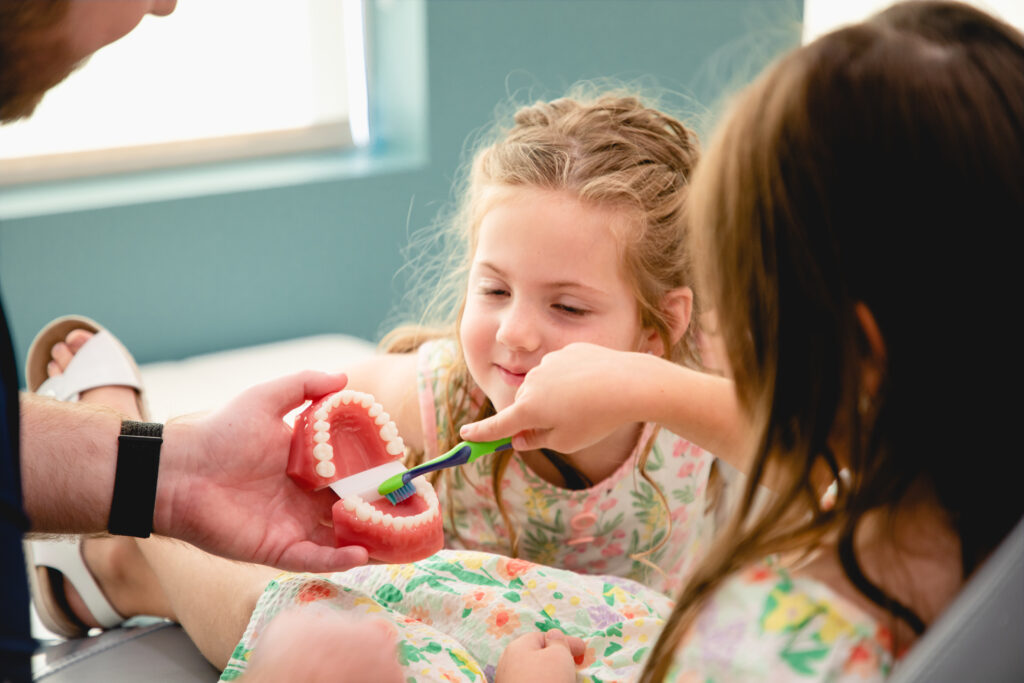

Our Blog
Sneaky Oral Health Issues You Might Not Notice in Your Child
As a parent, you do your best to ensure your child has a healthy, happy smile. You encourage brushing, schedule regular dental visits, and limit sugary treats. But some dental issues can be sneaky—hiding in plain sight until they become bigger problems. Understanding the subtle signs of oral health issues can help you catch them early and prevent future complications.
.
- Bad Breath That Won’t Go Away
Occasional morning breath is normal, but if your child has persistent bad breath (halitosis) despite brushing and flossing, it could indicate an underlying issue.
Possible Causes:- Tooth decay or cavities – Bacteria buildup in cavities can cause bad breath.
- Gum disease – Even young children can develop early-stage gingivitis.
- Dry mouth – Saliva helps wash away bacteria, and a lack of it can lead to odor.
- Tonsil stones – These small, hardened bits of debris can cause a foul smell.
What to Do: - Ensure your child is brushing twice a day for two minutes and flossing daily.
- Encourage drinking more water to keep their mouth hydrated.
- Schedule a dental checkup if bad breath persists despite good oral hygiene.
- White Spots on Teeth: The First Sign of Decay
White spots on your child’s teeth may seem harmless, but they can be an early indicator of enamel demineralization—often the first stage of a cavity.
Possible Causes:- Frequent exposure to sugary or acidic foods
- Poor brushing habits that leave plaque on teeth
- Fluorosis, which occurs from excessive fluoride intake in young children
What to Do: - Pay attention to these spots and improve oral hygiene routines.
- Limit sugary snacks and encourage rinsing with water after meals.
- If you notice white spots, visit the dentist to determine if treatment is needed.
- Chipped or Worn-Down Teeth
Kids are active, and the occasional chipped tooth from a fall is common. But if you notice worn-down or flattened teeth, nighttime grinding (bruxism) could be the culprit.
Possible Causes:- Stress or anxiety
- Misaligned teeth
- Hyperactivity or certain sleep disorders
What to Do: - Listen for grinding sounds at night and check for morning jaw pain.
- A dentist can determine if a night guard is needed to protect their teeth.
- Encourage relaxation before bedtime to reduce stress-related grinding.
- Sleeping with an Open Mouth
Does your child often sleep with their mouth open? This could be a sign of mouth breathing, which can impact their oral and overall health.
Possible Causes:- Dry mouth, leading to higher cavity risk
- Changes in jaw development and facial structure
- Poor sleep quality, affecting energy levels and focus
What to Do: - If your child frequently breathes through their mouth, discuss it with their dentist or pediatrician.
- Encourage nose breathing during the day and check for possible nasal congestion.
- If needed, an evaluation with an ENT (ear, nose, and throat doctor) or sleep specialist may help.
- Delayed Tooth Loss or Crowded Teeth
Every child follows their own timeline for losing baby teeth, but significant delays or crowding can indicate orthodontic concerns.
Possible Causes:- Baby teeth not falling out on time, preventing permanent teeth from coming in
- Early loss of baby teeth causing surrounding teeth to shift
- Genetics or jaw size discrepancies
What to Do: - If baby teeth haven’t started falling out by age 6 or 7, check with your dentist.
- Routine dental visits help track development and determine if early orthodontic intervention is needed.
.
When to See a DentistIf you suspect your child is a habitual mouth breather, here are some steps you can take:
Many of these issues can be managed at home, but if you notice persistent symptoms, schedule an appointment with us. Early intervention can help prevent bigger problems and keep your child’s smile healthy and strong!
Regular checkups every six months are the best way to catch sneaky oral health issues before they become serious. If you have concerns, don’t wait—schedule a visit today.